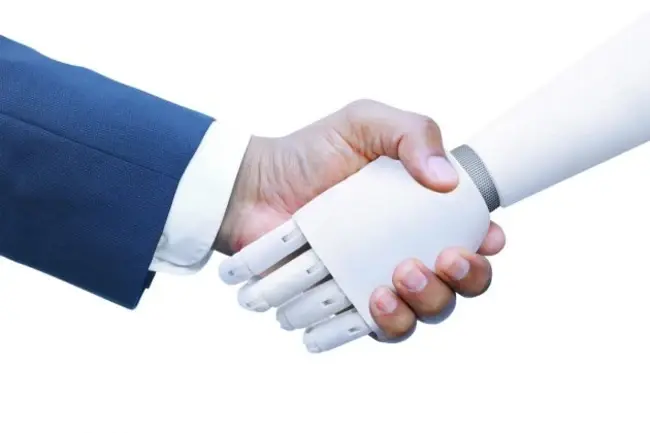Sridhar Iyengar is the Head of Zoho Europe. Opinions expressed by EM360 contributors are their own.
In the world of business, it is essential to step back and take stock from time to time, ensuring that activities are aligned with overall strategic goals. Focusing on tasks essential to business growth, such as deciphering reams of data, anticipating issues, identifying solutions, as well as making sure all activities run smoothly, can often end up resulting in hours upon hours of extra work. Tasks such as these are tedious, time consuming and can distract from other important business activities, yet are still essential for development; so perhaps what companies need is an ‘intelligent’ approach.

Programmed with business growth as its priority, artificial intelligence (AI) is playing an increasingly critical role as companies explore new techniques and tools for acquiring and transforming raw data into meaningful and useful information for all aspects of business. An AI's interpretation is unbiased; while three different employees’ views of the same data set will differ, an AI can summarise the data to only give the answer that is needed by calculating thousands of possible scenarios and choosing whichever one provides the greatest profits. It is easier for an AI to make this decision, because it not only sees the same graph, but also the data behind it, which is usually unseen by the business. By having these insights, organisations can focus on areas of development, find new business opportunities and plan strategies that aid growth and development.
A key use of AI is streamlining business processes and automating, so companies benefit from processes with fewer errors and tasks completed without delays, freeing up time for other important activities and boosting productivity per employee. Even for tasks as simple as contacting clients, an AI can inform teams of when best to do so. Unhappy customers, surpassing budgets, high employee turnover rates and so on, often result from inefficient processes, whereas an AI is inherently efficient and can enable organisations to successfully avoid these altogether.
The potential growth of AI is demonstrated by how far we've come in automation, and AI is certainly moving progressively forward. As Mark Cuban says, "We are going through the process where software will automate software, automation will automate automation". As development in AI technologies increase, we'll see a greater form of collaboration between man and machine allowing businesses to truly flourish.
Among all the misconceptions people may have about AI, two stand out: AI has a mind of its own or that it’s going to replace humans and take over jobs; this is a little far-fetched and Anand Rao, partner and innovation lead of PwC Data & Analytics, explains why "According to the old-fashioned stereotype, smart machines will replace humans at work—thus stealing jobs, but with the advanced AI techniques now in use, people’s jobs will actually be enriched by the host of information delivered by AI, which they can use to make the best possible choice at the moment."
AI is designed by humans and programmed to find solutions to improve the everyday life. By adopting an AI within business processes, companies can benefit immensely by anticipating issues before they happen as well as identifying solutions, and making their business processes more 'intelligent'. This allows employees at all levels to complete tasks more efficiently, and set aside more time for high-level strategic thinking.
Some would argue that the growth of artificial intelligence equals an overall growth of industries. Inevitably others will fear the unknown as AI is relatively new and an unknown quantity. Rumours and debates continue to keep people on the fence about trusting an AI with something as important as their company. Thanks to Hollywood we’ve come to expect robotic humanoids as the face of AI, but businesses have yet to realise that AI is already a part of everyday life; be it answering a question on the weather, recommending movies to watch or whether a business is going to prosper, AI makes life simpler and a whole lot smarter.
With Gartner predicting that by 2020, AI will be pervasive in almost every new software product and service and the technology will be a top five investment priority for more than 30 percent of CIOs – it is clear that there will be increased collaboration between man and machine in virtually every aspect of our lives in the coming years. From industry leaders to small business owners there’s broad consensus that AI is the next game-changing technology and is poised to revolutionise the world of business.




Comments ( 0 )